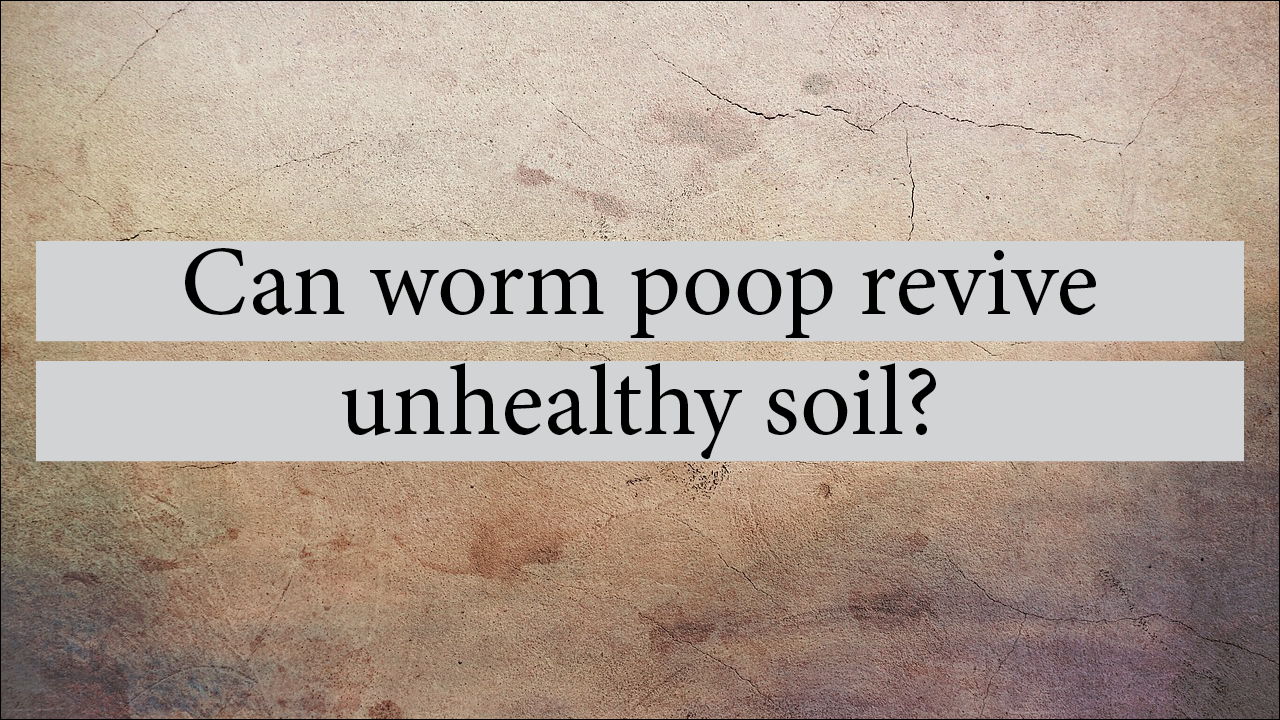
Innovative methods to rejuvenate unhealthy soil have gained significant attention. One such intriguing approach involves the utilization of worm poop, scientifically known as vermicompost. This natural fertilizer, rich in essential nutrients and microbial life, has sparked curiosity among researchers and agriculturists alike. Can worm poop truly revive unhealthy soil? This article delves into the fascinating world of vermicompost, examining its composition, benefits, application, and addressing frequently asked questions.
The Power of Worm Poop: Unraveling Vermicompost
Understanding Vermicompost
Vermicompost, often referred to as “black gold” in agricultural circles, is the result of the intricate process of vermicomposting. This process involves the consumption of organic materials, such as food scraps, plant residues, and manure, by specific species of earthworms. As these earthworms digest and break down the organic matter, they excrete nutrient-rich waste, which is vermicompost. This natural fertilizer is teeming with beneficial microorganisms, essential nutrients, and organic matter, making it a potent soil amendment.
Nutrient-Rich Composition
The composition of vermicompost is a key factor contributing to its efficacy in soil revitalization. It contains a balanced mix of essential nutrients, including nitrogen, phosphorus, potassium, and micronutrients, all of which are essential for plant growth. Additionally, vermicompost is rich in humus – a dark, organic substance that enhances soil structure, water retention, and nutrient-holding capacity.

FAQs About Vermicompost and Soil Revitalization
1. Can vermicompost truly revive unhealthy soil?
Yes, vermicompost has the potential to greatly improve the health of unhealthy soil. Its nutrient-rich composition enhances soil fertility, promotes beneficial microbial activity, and improves soil structure. By incorporating vermicompost into the soil, you can help rehabilitate degraded soils and promote healthier plant growth.
2. How does vermicompost compare to traditional compost?
While both vermicompost and traditional compost are valuable soil amendments, they differ in their nutrient content and microbial activity. Vermicompost tends to have higher levels of nutrients and a more diverse population of beneficial microorganisms due to the involvement of earthworms in its creation. This makes vermicompost particularly effective in providing a quick and nutrient-rich boost to plants.
3. Is vermicompost suitable for all types of plants?
Yes, vermicompost is generally suitable for a wide range of plants, including vegetables, fruits, flowers, and trees. However, it’s important to consider the specific nutrient requirements of the plants you’re cultivating. Conducting a soil test can help determine the nutrient levels in your soil and guide the appropriate application of vermicompost.
4. How should vermicompost be applied to soil?
Vermicompost can be applied in various ways, including as a top dressing, incorporated into potting mixes, or mixed into garden beds. It’s advisable to mix vermicompost with existing soil in appropriate proportions to avoid overwhelming plants with nutrients. For potted plants, blending vermicompost with potting soil can provide a nutrient-rich growing medium.
5. Can vermicompost replace synthetic fertilizers?
Vermicompost can be a valuable alternative to synthetic fertilizers, especially for environmentally conscious and organic farming practices. It releases nutrients slowly over time, reducing the risk of nutrient runoff and pollution. However, the complete replacement of synthetic fertilizers with vermicompost may depend on factors such as crop type, soil conditions, and specific nutrient requirements.
As we strive for sustainable agriculture and environmental restoration, exploring novel methods to revive unhealthy soil becomes paramount. Vermicompost, with its nutrient-rich composition and diverse microbial life, offers a promising solution to this challenge. The utilization of worm poop as a soil amendment showcases the intricate interplay between nature’s processes and our agricultural goals. By understanding the science behind vermicompost and its application, researchers and agriculturists can harness its potential to cultivate healthier crops and contribute to a greener planet.